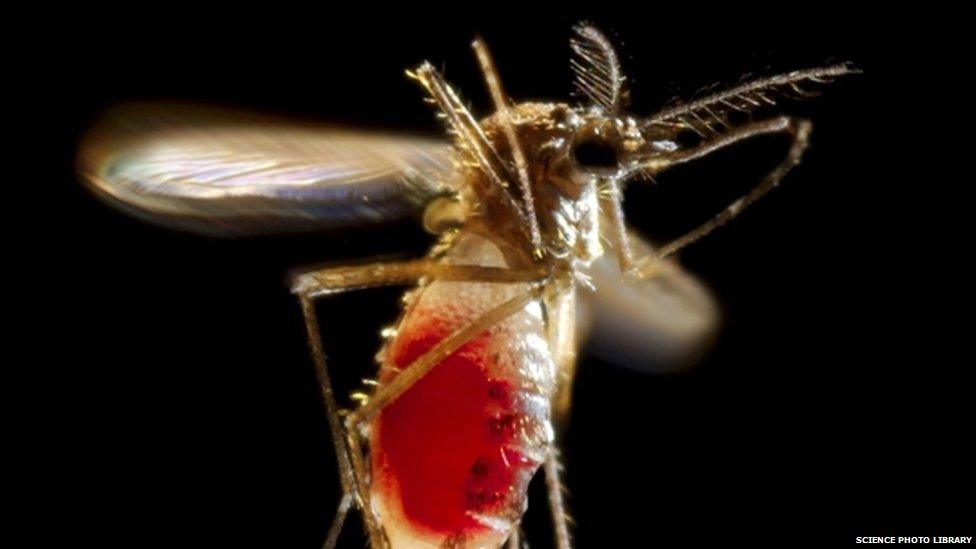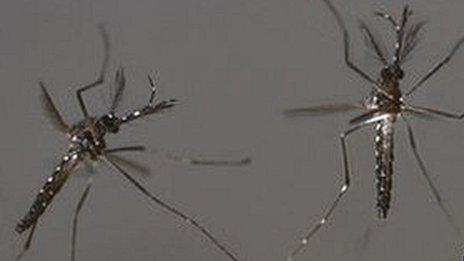Brazil state announces Zika fever emergency
- Published

Aedes aegypti mosquito is found throughout tropical Africa and in parts of South America
The Brazilian state of Pernambuco has declared a state of emergency to help speed up the official response to Zika fever.
The mosquito-borne virus from Africa has been linked to a spike in birth defects across the country.
Pernambuco has around two thirds of the cases of micro-encephalitis - an inflammation of the foetal brain that can stunt growth of the baby's head.
A World Health Organization team is due in Brazil this week.
On Saturday, the Brazilian health ministry said the link between Zika and birth defects was unprecedented anywhere in the world.
The ministry said doctors had found Zika virus, external in the blood and tissue of a baby with the disease in the north-eastern state of Ceara.
It said it had recorded two adult deaths and 1,248 cases of micro-encephalitis this year - an eight-fold increase on last year's numbers.
Most cases of micro-encephalitis have been in the north-east of Brazil but cases also rapidly appeared in the south-east, including the states of Rio de Janeiro and Sao Paulo.
The Zika virus was first detected in Brazil in April and has spread to 13 states.
It appears relatively harmless at first, causing a rash and a fever for a few days.
But ministry officials have issued warnings to women to think carefully about getting pregnant at the moment in areas where there are Zika fever cases.
Zika is transmitted by the Aedes aegypti mosquito, also known to carry the yellow fever, dengue and chikungunya viruses.
The authorities in Pernambuco say the state of emergency will allow for more staff to be recruited quickly to conduct a large door-to-door public education campaign on the dangers of allowing breeding areas for mosquitoes in stagnant water.
Brazil's ministry of health says Zika has become a serious risk to public health and that Brazil must embark on an emergency programme to control the Aedes aegypti mosquito to prevent the virus's spread.
- Published5 May 2015
